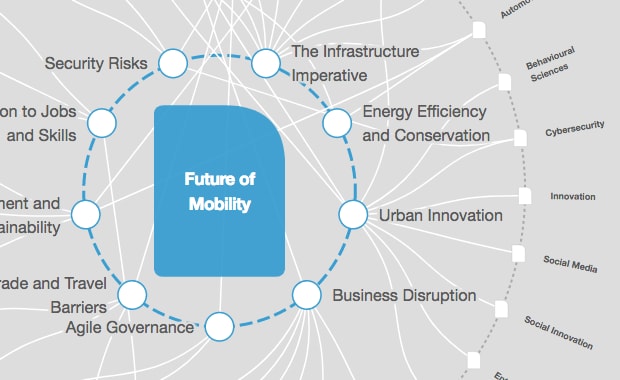Electric vehicle sales leapt 55% in 2022 - here's where that growth was strongest

Sales of new electric vehicles in China increased by 82% in 2022 year-on-year. Image: Pexels/Kindel Media
Listen to the article
- Global sales of electric vehicles (EVs) increased by 55% in 2022 from the year before, according to data from the EV Volumes sales database.
- China remains the world’s largest EV market, with 59% of global sales.
- World Economic Forum estimates annual EV sales need to increase 18-fold by 2030 to meet global emissions targets.
Many people around the world will have noticed an increasing number of electric vehicles (EVs) on the roads in the towns and cities where they live. The latest data on global sales of EVs confirms a growing appetite for green motoring.
EV sales rose by 55% in 2022, reaching a total of 10.5 million, according to the EV Volumes sales database. These figures include both battery electric vehicles (BEVs) and plug-in hybrids (PHEVs).
Where were EV sales strongest?
Sales of new EVs in China increased by 82% in 2022 compared to the year before. The country accounted for 59% of global EV sales last year, cementing its position as the world’s largest electric vehicles market. China is also the world’s biggest EV producer, with 64% of global volume.
Sales in the world’s second-largest EV market, Europe, increased by just 15% in 2022, according to the data. Persistent component shortages exacerbated by the war in Ukraine contributed to the slowdown in sales which had been strong in the previous two years. EV sales in the US and Canada fared better, increasing by 48% year on year.
EV adoption is also growing rapidly in the global South, the data shows.
The fastest growing markets last year were Indonesia, India and New Zealand. India experienced sales growth of 223% and New Zealand recorded a 151% increase in sales compared to 2021.
EV Volumes predicts global sales to increase by 36% in 2023 over the year before to more than 14 million vehicles. By the end of this year, it expects 40 million EVs to be on the world’s roads, with 73% of these being battery vehicles and 27% plug-in hybrids.
EV momentum accelerates
The rapid rise in EV adoption has also been confirmed by the International Energy Agency (IEA). It says that one in every seven passenger cars bought worldwide was an EV in 2022. This compares to one in every 70 just five years earlier.
The IEA says this growth is being helped by increasing international collaboration on electrification targets. More than 100 stakeholders signed a declaration at the COP26 climate summit in late 2021 to accelerate the transition to zero-emission cars and vans. They pledged to work towards all new cars and vans being 100% zero-emission by 2040, and by no later than 2035 in leading markets.
The IEA says that the world's biggest car manufacturers are getting fully on board the EV revolution. It says this is both to comply with evolving policy regulation, as well as a bid to remain competitive.
Among recently announced initiatives are Japanese automaker Toyota targeting 3.5 million annual electric car sales by 2030; Ford announcing one-third of sales to be fully electric by 2026; and Volvo to become a fully electric car company by the end of the decade.

How is the World Economic Forum facilitating the transition to clean energy?
The road to net zero
Annual sales of EVs will need to increase 18-fold by 2030 to help limit the worst impacts of the climate crisis, according to the World Economic Forum’s Fostering Effective Energy Transition 2022 report. The continued growth of global EV use remains crucial to the decarbonization of the road transport sector, which is responsible for 15% of global greenhouse gas emissions.
But despite the impressive recent sales growth in the EV sector, the IEA warns that there is still a long road ahead.
“Few areas of the new global energy economy are as dynamic as electric vehicles. The success of the sector in setting new sales records is extremely encouraging, but there is no room for complacency,” says Executive Director Fatih Birol.
“Policy makers, industry executives and investors need to be highly vigilant and resourceful in order to reduce the risks of supply disruptions and ensure sustainable supplies of critical minerals.”
Don't miss any update on this topic
Create a free account and access your personalized content collection with our latest publications and analyses.
License and Republishing
World Economic Forum articles may be republished in accordance with the Creative Commons Attribution-NonCommercial-NoDerivatives 4.0 International Public License, and in accordance with our Terms of Use.
The views expressed in this article are those of the author alone and not the World Economic Forum.
Stay up to date:
Mobility
Forum Stories newsletter
Bringing you weekly curated insights and analysis on the global issues that matter.








